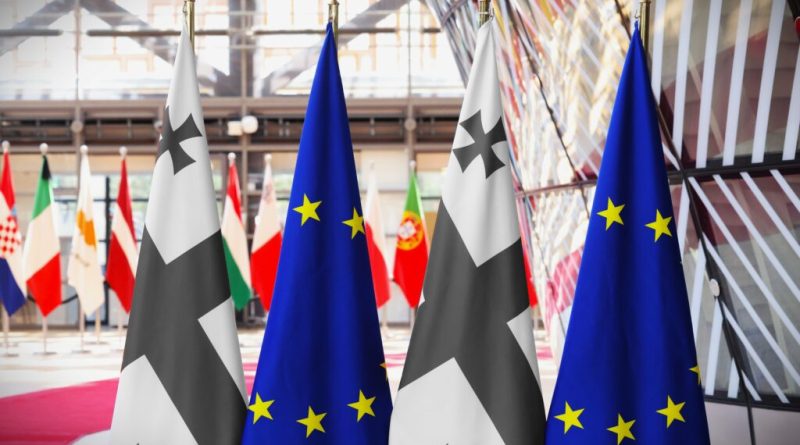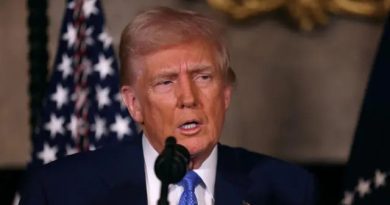Georgian diplomats lose visa-free travel: experts weigh in on EU sanctions and Tbilisi’s response

The European Union decides to suspend the visa-free regime for holders of Georgian Diplomatic and Service Passports. The decision in Brussels was made in response to Georgian Dream’s repressive laws and violence against protestors. Experts’ opinions on the EU verdict are split: some say there’s a need for stricter measures while others believe the visa-free ban is a clear message for Tbilisi. SOVA asked for comment on the EU’s decision from the co-founder of the Center for Strategic Analysis, former diplomat Valeri Chechelashvili, the director of the Center for European Research at the Rondeli Foundation Kakha Gogolashvili, and the head of the Europe-Georgia Institute Giorgi Melashvili.
Translated by Adrian Bader
Can we call this visa-free ban for diplomats an effective measure?
Valeri Chechelashvili
«Whatever the measure is, this is a very clear sign that conversations with today’s de facto Georgian government and its officials will be conducted very selectively. This doesn’t mean that no one in the government can travel to Europe, but the director of the Ministry of Foreign Affairs department can obtain an EU visa much easier than a Georgian Dream political leader.
When it came out, [Prime Minister] Irakli Kobakhidze said that it was an anti-Georgian measure. But this isn’t an anti-Georgian measure of any kind because diplomatic and service passport holders make up 600-700 people, which is only 0.001% of the Georgian population. This anti-government measure means the European Union wants to limit contact with these types of people.»
Kakha Gogolashvili
«I don’t think so. This is a minimal measure in terms of what they could’ve decided at this time. Although technically, they could’ve done much more and suspended visa-free travel [for Georgia]. But this would’ve been negative for all of society. Then the government could have used this for propaganda.»
Giorgi Melashvili
«The European Union has long said that the actions of Georgian Dream will elicit a reaction. Their main response has been the end of EU integration talks, which are currently frozen. Everything else, whether it’s a specific ban on entry into the EU or just those with diplomatic passports, is of lesser importance.
Considering that the bloc has at least two leaders who support Georgian Dream and are ready to block any EU decision, it’s fair to call this decision more or less adequate. The European Union decided not to punish the entire population of Georgia; they want to show that visa-free travel is still allowed for regular citizens.
Does the EU decision affect everyone involved in Georgia’s reduced democracy?
Valeri Chechelashvili
This decision doesn’t affect everyone. Unless business representatives somehow receive official service passports by bypassing the laws, it won’t affect them. This decision seems to be primarily aimed at the government, ministries, parliament members, and members of the Constitutional Court. But for businesses that are considered part of a proxy regime and support the ruling party, other measures will be implemented. We’ll soon see the measures from the United States and Great Britain. The European Union has 27 member states, and reaching a consensus is difficult.
Kakha Gogolashvili
Of course, it doesn’t affect everyone. This decision affects 500 Georgian citizens—high-ranking civil servants, diplomats, and members of parliament. But many other Georgian citizens are involved in this rollback of democracy, including representatives from internal affairs, security, business sectors watching what’s happening, and television channels.
Giorgi Melashvili
Obviously, sanctions affect Georgian Dream representatives because they are the ones with some level of influence and diplomatic passports, and they’ve happily used the privileges these passports provide. Now, they’ll have to get a visa.
What reaction can be expected from the Georgian government?
Valeri Chechelashvili
Well, what can they do in response? Ban visa-free visits of European politicians and bureaucrats to Georgia? We’ve gotten used to waiting for any reaction from Georgian Dream, and this will provide very little consolation.
Without these measures, there haven’t been any signs that Georgian Dream is ready to compromise—they haven’t shown this. Therefore, the European Union, like the United States and Great Britain, can’t do anything except tighten their sanctions further. Everything that has happened until now has been incremental. The opportunity for a move by Georgian Dream remains, but it’s getting smaller.
Giorgi Melashvili
Georgian Dream has decided not to focus on what’s happening. We’ve already seen the initial reaction from the government’s Maki Bochorishvili [Minister of Foreign Affairs], who tried to downplay the significance of this decision, calling it a technical error. In reality, however, this is a very clear sign that Georgian Dream and their supporters are not entirely well, and if this continues, they will have to forget about the privileges that ordinary citizens continue to enjoy.
How will this affect sanctions policy? Is there a risk of visa-free suspension for Georgia?
Valeri Chechelashvili
I think the first step will be taken by either Great Britain or the United States. In the US, this is tied to two laws in Congress: the Megobari Act and a law recognizing the current Georgian government as illegitimate. Great Britain, for its part, has published a list of measures and people who will be affected by these sanctions. If Georgian Dream holds firm on its position, then within a month and a half, we’ll likely see a new wave of sanctions.
Kakha Gogolashvili
There might be the adoption of sanctions by individual countries on a case-by-case basis. Due to Bulgaria and Slovakia, some EU countries might form coalitions of 10-12 representatives and decide on the termination of visa-free travel in this format.
I think the next step will depend on Germany, France, or possibly Italy, as well as ex-Soviet countries. But there’s still the question of relations with Slovakia—everything depends on what happens in their elections. I think these countries will form a coalition and then make an independent decision. Until then, in Georgia, the government will continue to move further away from the EU.
We don’t yet see the exact contours of the situation—for instance, we don’t know what to expect from Trump’s policies or his administration. But the European Union will not remain loyal to a Georgian government that has ignored the opinions of its people.
Giorgi Melashvili
The termination of visa-free travel, as opposed to specific sanctions, doesn’t require a consensus. A simple majority is enough. That’s exactly why this mechanism was one of the first that the European Union began to review. However, at this stage, they decided it wasn’t necessary because it goes against the interests of Georgian citizens. The European Union is trying to avoid the collective punishment of citizens who are advocating for democracy.
Specific sanctions against individual people were adopted by some EU member countries. Germany, for example, introduced a ban on representatives attending business meetings. France also applied similar bans. Such individual sanctions and actions can be expected in the near future.




